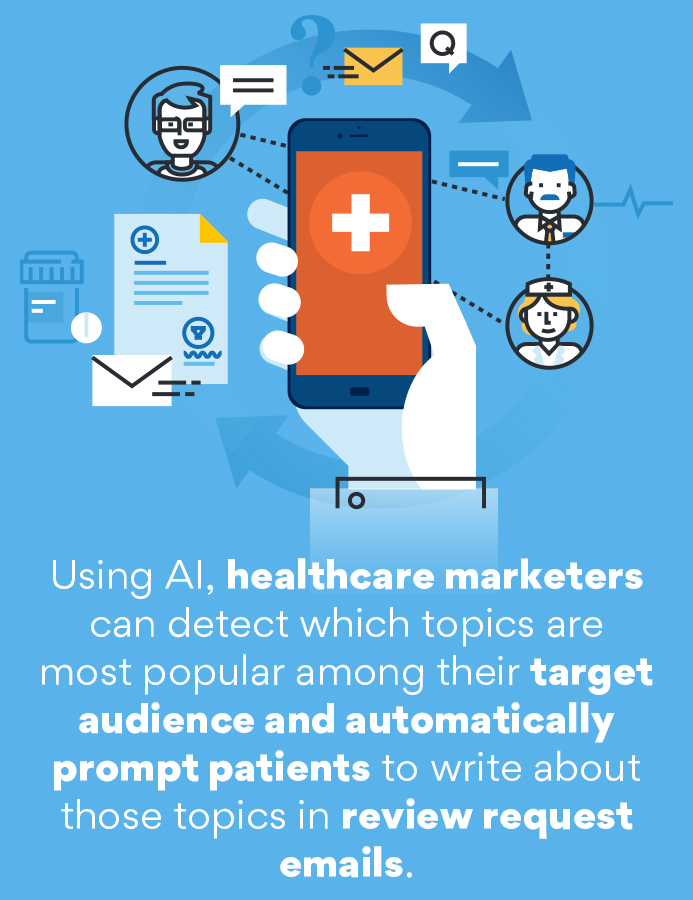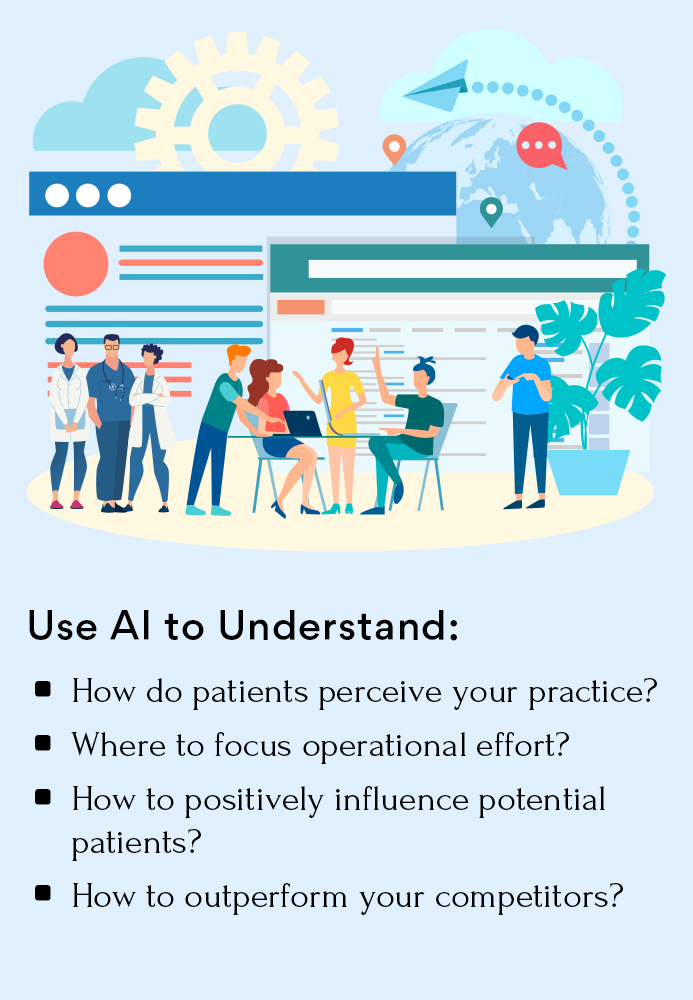How Artificial Intelligence Helps Doctors Protect Online Reputation
Posted on
Online reputation management is crucial, especially for doctors. Patients read online reviews, often before you even have a chance to provide them with excellent service. What’s more, bad reviews can cause your medical practice to not show up in search results, further damaging your ability to attract patients in the first place. Online reviews are critical, but what can you do to make them better?
First, understand that bad reviews happen, and each one is an opportunity to make things better. Patients have bad days, and sometimes things can escalate quickly. The angriest of patients leave bad reviews, so it can seem as though there’s nothing that can be done about them. But when you treat bad reviews as opportunities to make things right, you can turn those angry patients into your biggest allies. All patients want is to feel heard and cared about, so when you respond to bad reviews by asking how you can make things right, it shows you are taking responsibility and trying to fix the problem.
Most patients only trust medical practices with a four-star or higher rating. Patients appreciate having trusted doctors who have already been tested and rated before they visit, as it gives them more confidence in their healthcare provider’s decisions.


A strong online reputation can help you stand out from your competitors and can drive sales right to your door. Patients often look at a medical practice’s ratings before choosing whether to schedule an appointment. So a few negative reviews can dissuade a lot of potential patients if you don’t handle these reviews correctly. Almost 90 percent of patients use the Internet to comparison-shop for every single purchase they make, and 78 percent trust online ratings as much as they would trust a personal recommendation from someone they know. What’s more, most patients are 68 percent more likely to visit a medical practice after reading positive reviews.
What is most important to understand, though, is that negative reviews can affect your search engine ranking, limiting your online visibility. Increasing your star rating from three to five stars can generate 25 percent more search traffic for your medical practice, which will lead to increased sales and visibility.

It takes skill and time to manage your medical practice’s online reputation, which is the main reason many medical practices ignore it altogether. While only one in five medical practices say they struggle to respond to reviews, 65 percent of patients say they are not getting the response they expect. Advanced review management tools based on technologies like artificial intelligence can help you pick up the slack and manage your medical practice reputation more effectively.
As of 2020, 25 percent of patient service interactions are handled by advanced technologies like artificial intelligence. AI and machine learning will be finding relevant information, responding when necessary and indexing insights into something searchable and usable by medical practices. What’s more, AI can automatically prompt patients to leave feedback after a transaction, and when that happens, 80 percent of patients do leave feedback.
Online ratings and reviews matter, and 70 percent of potential patients form their opinion of your medical practice after reading just three reviews. Make those patient reviews count in your favor by using AI and machine learning technologies.

Medical Review Management Using AI
A lot of forward-thinking online reputation management agencies are adopting artificial intelligence review management services. Here are some of the many ways AI is being used for intelligent reputation management for doctors:
- Intelligent systems will predict public opinion about your brand and services based on what messages you receive, how and when you receive them and from whom you receive them. Using this data, you can decide what to say to your patients. This will help you create a more robust and positive brand image.
- AI will save your time and effort by responding to most of the reviews that you receive. Most online reputation management firms now offer this service. They use generic predefined templates and then customize them according to the patient reviews received.

Conclusion
Managing your online reputation is now more critical than ever. The volume and speed of patient experiences being shared online are high, and they include short posts on channels like Facebook and full-fledged reviews on third-party review sites like Yelp.

What this means for medical practices is that they are at risk of reputation damage at all times. Due to the overload of information available online, it can become difficult for medical practice owners to manage their online reputation. This is where intelligent online reputation management services come in handy. Reputation management companies such as Practice Builders enable you to monitor, manage and strengthen your online reputation through a single dashboard. With intelligent features such as negative patient review filtering and response suggestions, you can stay up-to-date with what is being said online about your brand.

 Why Good communication Matters in Healthcare
Why Good communication Matters in Healthcare De-Escalation Tips for Handling Aggressive Patient..
De-Escalation Tips for Handling Aggressive Patient.. Reaching The Right Audience Through Target Marketi..
Reaching The Right Audience Through Target Marketi..